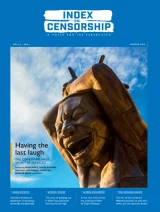The UK has the world’s largest DNA database, containing information on almost three million people, the estimated number of active criminals in he UK. Samples can be taken from anyone charged with any offence, even when DNA is not usually needed for the investigation begging, for example, or taking part in a prohibited public demonstration. Meanwhile, the rest of the world is close on the UK’s heels. While few would object to the use of DNA in criminal cases, the vast scale of data retention, compared to the relatively few cases in which DNA profiles actually lead to a crime being solves, creates misgivings about the potential misuse of data. The invasion of privacy is a particular issue where family members are scooped up in investigations without their knowledge or consent. Ethnic discrimination could also be exacerbated by life-long data retention: huge imbalances between the number of arrests black and white people in the US and the UK could lead to a situation where entire populations are DNA recorded.
Tania Simoncelli
is a science and technology fellow with the American Civil Liberties Union.
